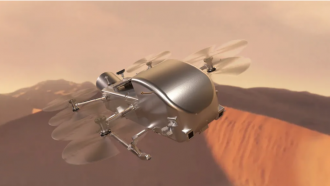
Bastiano is one of the most followed leaders of todays world. He is a visionary whose work and ideas changed industries the way we know them today. At 23 years old, Bastiano was able to make three million dollars in one month by thinking outside the box, which he donated entirely for children with cancer causes. From there, he has never stopped working to achieve his seemingly unachievable goals. After founding multiple companies and successful ventures, Bastiano became a regional director at a highly reputable firm, increasing the region's revenue by 135% in a few months. He then joined a big 4 consulting firm as a transformation leader, where he received the highest industry awards. This gave him the opportunity to lead multi-billion-dollar transformations and build the product management practice ground up for fortune 100 firms. In 2021 Bastiano was voted "Next Gen Leader" by Forbes as a recognition to his grand achievements in the business world, and his influence on young aspiring leaders.
In this article, Bastiano is going to share some insights on modern product management in the post pandemic "new world".
What is modern product management?
The product ecosystem is becoming increasingly complex, transforming the role of a product manager from one that focuses on execution, to a data-driven mini-CEO role, but one that has no direct authority. Product managers act as a glue that brings together marketing, engineering, business, design, finance, legal and more. Their work impacts the future of the organization by the products and features created, and by the decisions made in the process. With the post pandemic "New World", the success of product managers will hinge on their adaptability amid constant change, flexibility, comfort with data, and empathy for customers and internal teams.
How would you describe product development today?
In today's modern product development, LEAN thinking (doing the right thing) and AGILE delivery (doing things right) play a major role. With a focus on continuously delivering value to customers, companies like AirBNB can deliver features to their customers as quickly as 2 days. This is accomplished through a continuous delivery pipeline, an operational process that empowers employees, and a mentorship program that quickly brings new hires up to speed.
Having seen product management applied at multiple organizations, have you noticed any common pitfalls?
I see a lot of product managers fall in love with their products instead of falling in love with their customers. Even large organizations fall into this trap such as Microsoft's overly engineered Windows Vista and Juicero the wifi juicer that did not solve any customer problems. Another common practice I see if putting more emphasis on process and less on delivering value. Some product managers rush into product development before aligning on what value they are trying to deliver and to which customer segment and devising a good product strategy.
What sets product managers apart?
The product manager role revolves around creating value for customers, where the customer can be internal or external to the organization. Some of the common expectations from a product manager include expertise in the product development lifecycle, ability to perform proper customer and market research, setting vision, driving alignment on product roadmaps, planning and implementing product launches, emotional intelligence, leading cross-functionally and creating trusting relationships throughout the organization. These all make a "good" product manager.
However, what makes an exceptional product manager is the ability to have empathy with the customer's problems and needs, and to maximize customer value. An exceptional PM can create clarity, vision, and motivation around customer needs, ensure a design that solves for customer problems. They align the entire product development process around iterating, measuring, and improving to deliver value for customers. This is also emphasized in LEAN product management where it prioritizes customer problems and needs over internal requirements.
What are some trends in product management and product development?
We are witnessing unprecedented times. There are trends that have been shaping for a few years, and other trends that were shaped more rapidly due to the 2020 pandemic. Here are some of the trends I see:
Product Digitization: With dispersed teams, lockdowns, and health concerns due to the 2020 pandemic, the digital transformation of product witnessed an unprecedented breakthrough. Many products and services became digital. Common examples are food services, online classes and training and much more.
Geographically Distributed product teams: With the work from home routine, it's common to find product teams working from anywhere in the world. This makes it easier to find product talent anywhere and reduces the company's fixed cost.
Customer behaviors and customer expectations are changing. More customers expect organizations to relate to their individual needs. This is triggered by the availability of data, and how companies are using this data to personalize communication, ads, and product customizations to customers. It is a minimum expectation, especially in new tech-savvy generations, for companies to understand customers better.
Tools are evolving rapidly: There are a plethora of product management tools in the market today, that create efficiency across the entire product ecosystem. New tools can also create opportunities for virtual team collaboration. This will continue evolving to address the entire product development process or target a single isolated process such as creating roadmaps.









